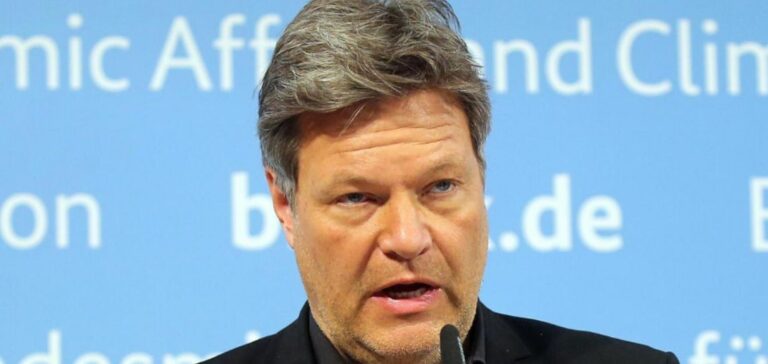Germany’s Economy Minister hailed “significant progress” on Tuesday in talks with the European Commission on the state aid Berlin wants to devote to the construction of new hydrogen and gas-fired power plants, key elements in Germany’s energy transition. Germany wants to use these power plants to compensate for the intermittent supply of solar and wind energy.
Thorny discussions with Brussels on public financing of new power plants
Germany’s energy transition calls for the construction of new hydrogen and gas-fired power plants. These plants will be essential to ensure grid stability, given that nuclear power has been abandoned and coal is being phased out. However, there are challenges ahead in discussions with Brussels regarding public funding for these facilities. Their intermittent operation limits their profitability, which requires subsidies. The Minister for the Economy and Climate, Robert Habeck, described the negotiations as “intense”, although he was confident that agreement had been reached on the legal framework for the planned tenders for these power plants.
“We have made significant progress,” he said in a statement. The European Commission has not yet given the go-ahead for these subsidies, he added, but the discussions have made it possible to define “the safeguards (…) to comply with European legislation on state aid and energy”.
Agreement on tender for new hydrogen and gas power plants in Germany
According to the Green Minister, Germany is planning to invite tenders for 8.8 gigawatts (GW) of new hydrogen power plants. Up to 15 GW of additional capacity will initially run on natural gas before being connected to the hydrogen network by 2035. The Minister specified that the bidding process for 10 GW of these gas and hydrogen power plants will take place by 2026. The government will then evaluate the process before awarding the remaining 5 GW.
Conflict over subsidies: the decarbonization dilemma for Germany’s new gas and hydrogen power plants
Germany wants future power plants to fit in with EU decarbonization projects. This would guarantee rapid approval and a larger amount of aid, Spiegel magazine reported in July. The European Commission, however, sees a problem. Indeed, the construction of new power plants based on the combustion of natural gas does not really reflect a phasing-out of fossil fuels. As a result, only the climate-friendly hydrogen part could be subsidized. If this were the case, the amount of aid would be considerably reduced. Energy companies are emphasizing the urgent need for an agreement. Germany’s climate targets could be called into question if construction work on new power plants does not get underway quickly.






















